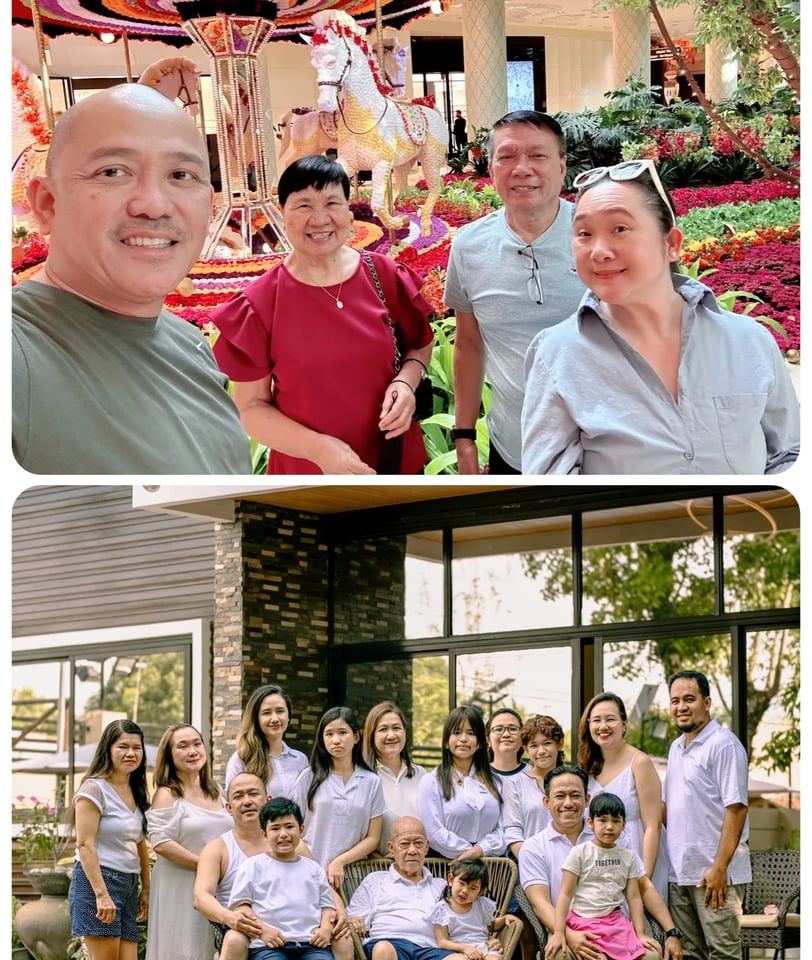Talking About Psoriasis with Friends, Family, and Strangers
This blog post dives into the often-overlooked emotional side of living with a visible (and sometimes invisible) condition. Whether it’s responding to stares from strangers, educating friends, or setting boundaries with family, this post explores the challenges and triumphs of sharing your psoriasis journey with others. I’ve included tips, reflection points, and personal stories to help you feel more confident and empowered in those everyday conversations. 💬💙 If you’ve ever struggled to find the right words—or felt like staying silent instead—this one’s for you. #PsoriasisAwareness #EmpoweredWithPsoriasis #ChronicIllnessSupport #AutoimmuneWarrior
Micke
4/9/20253 min read


Living with psoriasis isn't just about managing flares and medications—it's also about navigating conversations. Whether it's a curious question from a stranger, a misunderstanding from a loved one, or a well-meaning comment that lands wrong, talking about psoriasis can sometimes feel more exhausting than the condition itself.
In this post, I want to share some insights on how to talk about psoriasis with people in your life—and leave space for you to reflect or relate with your own experiences, just as I do.
1. The Awkward Glance: Talking to Strangers
It usually starts with a look. Maybe someone’s eyes linger a bit too long on your arms or legs. Maybe you catch a whisper or feel a shift in body language. The decision to speak up—or let it go—can be a tough one.
I had an unforgettable experience at a hospital (of all places) with a nurse (of all people!) who looked at me as if I was super contagious when I showed her my skin for a check-up. During that time, I did not know that it was psoriasis yet.
Over time, I’ve found that short, calm responses work best when I feel like speaking up:
“It’s not contagious. It’s called psoriasis—it’s an autoimmune condition.”
Sometimes I add a smile. Sometimes I don’t. Because how I respond depends on how I feel that day—and that’s valid.
2. Educating Friends Without Over-Explaining
When you live with a visible (or sometimes invisible) condition, it can feel like you have to become an educator by default. Friends might ask, “Did you get a rash?” or “Is that eczema?”—and suddenly you’re in health class mode.
I can call myself a very “open book” individual, and a storyteller too. At first, I was not ready to talk about it , like I am in a “denial stage”. But overtime, I was able to share a lot about my condition/s.
It helps to remember: friends may not always understand, but that doesn’t mean they don’t care. I’ve learned to share in small doses:
What psoriasis is (autoimmune, chronic, inflammatory—not contagious)
What helps me (rest, medication, reduced stress)
What hurts me (unsolicited advice, miracle cures, judgment
And sometimes, I just need a friend to sit with me in silence on a flare day—and not ask a thing.
3. Explaining to Family: Between Love and Misunderstanding
Family can be the most comforting or the most complicated part of your support system. Some members may go all-in researching your condition. Others might downplay it, say “It’s just skin,” or suggest remedies that aren’t helpful—or even safe.
One of my very close friends in college went out of her way to research what kind of specialist I really need to support me in what I am going through healthwise. She found out that a rheumatologist is the perfect specialist who can help me. She advised me that as I choose the best hotel/ restaurant for example that has great reviews, I should also choose the best “health team’.
A lot also reached out to share with me some “best practices” - what is working or worked for people they know who have the same condition/s as me.
Over time, I’ve come to see that I have to teach people how to support me—not just hope they get it. For me, that means saying things like:
“I appreciate your concern, but I’m already on a treatment plan.” “What I really need today is rest, not suggestions.”
It’s a journey. And others may never fully understand—but I can still set boundaries with love.
4. When You Just Don’t Feel Like Explaining
Here’s the truth: you don’t owe anyone an explanation—not every day, and not every time. Some days, I put on long sleeves, not to hide, but to protect my energy. Some days, I simply say,
“I’m having a rough skin day,”
and leave it at that.
I wear scaves, wide headbands, soft cardigans, etc. to conceal.
Talking about psoriasis is about empowerment, not pressure. You get to choose when, where, and how to share your story.
Final Thoughts
Whether you’re newly diagnosed or years into the journey, talking about psoriasis is an evolving process. With each conversation, you grow—not just in how you speak, but in how you stand in your truth.
So talk when you want to. Educate when you’re able. And protect your peace always.
Your voice, your skin, your story—it matters.
